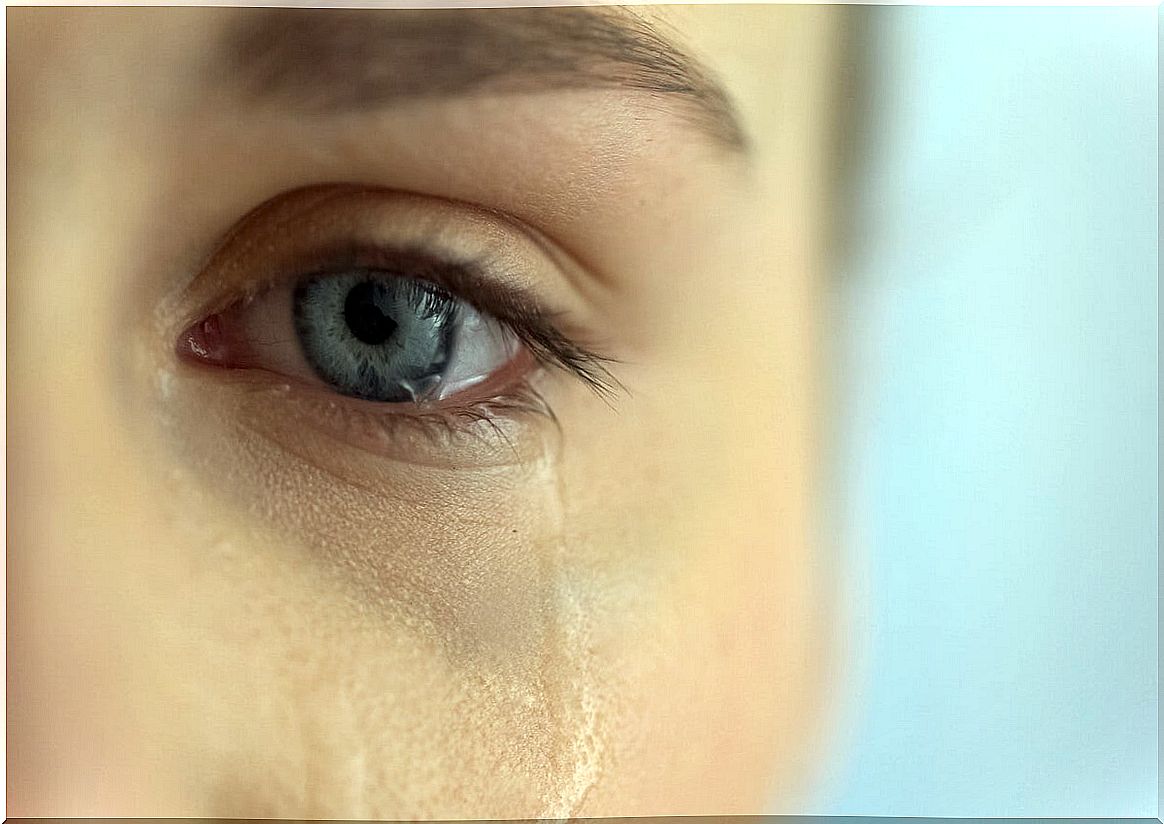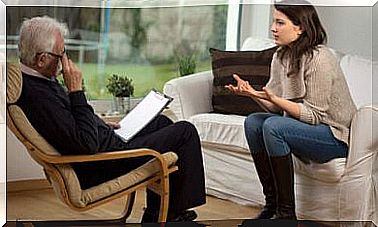How To Deal With Emotional Suffering?

Emotional suffering is a very painful and uncomfortable experience that makes us feel sad, hopeless, distressed, or anxious. Its causes are multiple. In this sense, it is important that we understand that emotional suffering is often born as a result of resisting natural pain due to a loss (or other circumstance).
Pain cannot be avoided (sometimes it arises as a natural consequence of an experience), although it can be softened. On the other hand, suffering can be stopped, especially when we become aware of our pain and the task that we have pending: face it to begin to heal. In relation to pain, we leave you a curious fact: neuroimaging research, such as that of Jaffe (2013), suggests that emotional pain “hurts” just like physical pain.
Other research suggests that both types of pain, when experienced, activate the same areas of the brain. Having made the differentiation between pain and suffering, we will try to shed a little light on the question of how to face emotional suffering, through some key ideas to start working on our well-being.
How to deal with emotional suffering?
Is it possible to face emotional suffering and ease it? How? We leave you some key ideas to start working on it.

The importance of acknowledging and accepting what we feel
When dealing with emotional suffering, it is important, first of all, to identify and acknowledge that suffering. How am I feeling? What is manifested in my body? And in my thoughts? There is no use denying or resisting what one feels, because this sooner or later comes back. That is to say, we cannot run away from it, no matter how much we try to do a thousand things “so as not to think”, evade, and so on.
We have a pending task that will “claim” us sooner or later. That is why from here we tell you: embrace your suffering, your pain, give it the space it needs to express itself, to develop. And once you have identified it, give it a name, face it.
Differentiate between pain and suffering
It is important here, as we have already indicated, to differentiate between pain and suffering. Pain is a process that is often natural (and adaptive), the result of some situation experienced (such as loss, grief); on the other hand, suffering often implies wallowing in that pain, or even not wanting to face it. Thus, resisting pain is an attitude that often gives rise to suffering.
Understand what causes that suffering
The next step when facing a situation that causes us suffering is precisely to understand what is causing this suffering. Perhaps something very specific has happened to us that we can identify, and that is what is causing us that suffering. For example: a loss, a great disappointment …
Perhaps we have had a really bad time, bad experiences have accumulated, we have not faced what we had to face, we have silenced emotions, etc. Be that as it may, slowing down and setting aside time for analysis will allow you to be more accurate when it comes to identifying the origin of these emotions.
Start a psychotherapeutic process
The goal of starting the psychotherapeutic process can be surrounded by obstacles. Why? Because it is a courageous decision in which we face our fears, defenses and resistance. However, many times, when emotional suffering is unbearable, it is the best option to begin to address what is happening to us.
However, it is not necessary to feel that “we are in the well” to ask for help, that is, it is not necessary to reach very high levels of suffering to go to therapy.
On the other hand, once you start therapy, it is likely that you will realize the following: and it is that there were many things in your life (or yourself) that were hurting you, and you could intuit it, but not handle it clearly ; Therapy serves to shed a little light on these things, give them their meaning, understand them and begin to build with them a path of self-discovery and inner peace.

Why do people suffer?
We have tried to gather some useful ideas to begin to face a time of emotional suffering. When we deal with this type of suffering in a healthy way, a curious thing happens, and that is that the suffering disappears but, instead, we find something else: pain. The good news? Pain also passes and also, unlike suffering, it does have a meaning and a utility.
Let’s not forget that uncomfortable or unpleasant emotions, such as those that arise from pain, are adaptive, and allow us to manage and regulate everything that happens to us inside. That is, they are indicating something to us, they have their meaning.
On the other hand, there are sufferings that are born not from the fact of resisting pain or loss, but from maladaptive and irrational thought patterns (related, above all, to anxiety), behaviors that hurt us, mental rigidity, etc. . In these cases, it will also be convenient to know why all this arises, how it is related to suffering and how we can work throughout this process to feel better.









